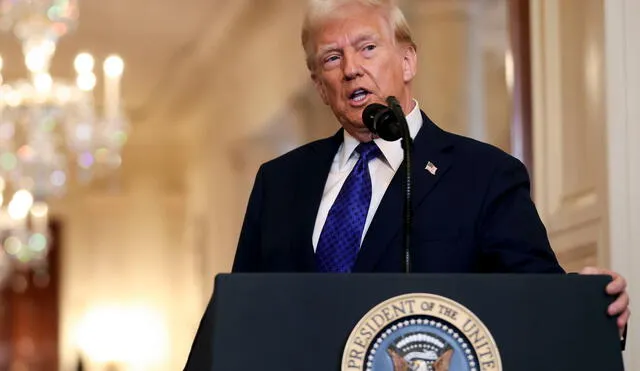Trump says tariffs on Mexico and Canada "could rise" and doesn’t rule out a possible recession
President Donald Trump has warned that taxes on Mexico and Canada could increase after a delay, as he discusses potential economic concerns, including the possibility of a U.S. recession in 2025.

In a recent interview, U.S. President Donald Trump revealed that the planned tariffs on Mexico and Canada, initially scheduled for April, could rise. This move follows a series of shifting decisions regarding duties on products such as steel, aluminum, and automotive goods. Trump confirmed that while a temporary setback was granted to both countries, the levies would go into effect by April 2, 2025, and might potentially increase if the nations fail to meet expectations related to trade and the flow of fentanyl.
Trump has been vocal about his fee strategy, framing it as part of a broader effort to combat drug trafficking, particularly the influx of illicit opioids. "We’re not in a trade war, we’re in a war against drugs," he stated. His approach has stirred tensions with U.S. neighbors, particularly Canada, whose Prime Minister Justin Trudeau has expressed concerns about the potential for a war. Despite these tensions, the U.S. administration is determined to hold firm on its policy as they push for stronger control over narcotics smuggling.
Trump’s shifting duty strategy: What’s at stake?
Donald Trump’s decision to impose tariffs on a range of goods came after a period of growing strain between the U.S. and its northern and southern neighbors. On several occasions, Trump suggested that charges on Canadian products, including dairy and lumber could growth, with the aim of leveraging these economic demands to achieve his desired results. “This is a transition,” Trump explained, referencing the gradual implementation of the taxes. He also warned that the imposition would continue until Mexico and Canada manage worries over the movement of fentanyl across U.S. borders.
The altering nature of these costs has created doubt among U.S. businesses, especially those that rely on exchange with Canada and Mexico. As a result, many are left wondering how far Trump is willing to go with these economic stressors, and how they will impact the economy, including cultivators who may be hit hardest by the market tensions. Trump assured that "ultimately, it will be great for the farmer" but acknowledged that the transition period might cause some discomfort.
Economic concerns: Could a recession be on the horizon?
While commercial friction and customs fees dominate headlines, Donald Trump has also been asked about the possibility of a recession in the coming years. "I hate predicting things like that. There’s a transition period because what we’re doing is very big," Trump stated. This reluctance to make definitive estimates comes amid expanding apprehension about a slowdown in the economy, with some economists warning that the current trajectory could lead to a contraction.
Mark Zandi, chief economist at Moody’s, pointed out that consumer confidence is dropping, which could trigger a decline in spending. "If confidence continues to fall for another three months and consumers pull back, then it’s game over," Zandi remarked. Despite these matters, Trump remains optimistic about the long-term benefits of his administration's policies, particularly for American farmers who are at the center of the dispute. However, as financial uncertainty rises, many are left wondering how the administration’s shifting policies will play out in the coming months.












